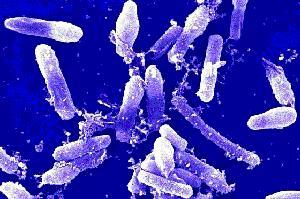A protein that enables bacteria to shut down into dormant spores under extreme conditions has been discovered. Sporulation is an effective survival mechanism, a state of dormancy, that some types of bacteria can enter into.
While many bacteria can tolerate harsh environments (like endolithic microorganisms, obtaining their energy and nutrients from rocks), the most extreme environments require sporulation to maintain survival. The process of sporulation enables bacteria to become very resistant to heat and radiation, creating life capsules for bacteria to survive in uninhabitable places including the most extreme places on the planet, such as under the permafrost, in the depths of the ocean or outer space (as some space missions have shown).
Discovering a new protein involved in sporulation in a group of bacteria could further our understanding of bacteria's ability to survive and potentially open up new avenues for antimicrobial therapies.
In this week’s article, the new research into the sporulating trigger protein is highlighted as well as an overview of some general aspects of bacterial sporulation.
See: LinkedIn article
Posted by Dr. Tim Sandle, Pharmaceutical Microbiology Resources (http://www.pharmamicroresources.com/)


